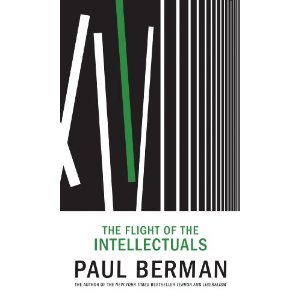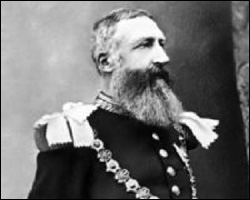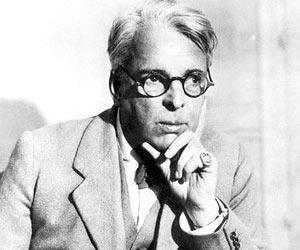Short Fuse: Who Hates Yeats?
Critic Paul Berman’s problem with the arts plays too significant a role in his work to be written off as but the tin ear of an historian and social thinker with weightier matters on his mind; his misreading of the arts is a fulcrum of his social thinking.
 The Flight of the Intellectuals, by Paul Berman. Melville House, 224 pages, $26.00.
The Flight of the Intellectuals, by Paul Berman. Melville House, 224 pages, $26.00.
Reviewed By Harvey Blume
Paul Berman hates poetry or doesn’t understand it—or both. That may seem like a peculiar thing to seize on about a book that purports, as the author says, to enter into a “central debate of our moment—the debate over Islamist ideas in the Western countries, and over the reluctance of journalists and intellectuals from Western backgrounds to grapple seriously with the Islamist ideas.” This is tantalizing, urgent material, to be sure. And yet Berman’s incomprehension cum scapegoating of “avant garde” literature intrudes recurrently and stridently enough into his argument to sow doubts not only about some of his finer points but about the basics.
For example, when discussing the roots of Islamist terrorism as formulated by Sayyid Qutb, its leading twentieth-century theoretician, Berman tosses in the observation that a comparable glorification of violence, a similar rage for apocalyptic denouement, was at work in the West where, through the works of the literary avant garde—Baudelaire, Rimbaud, and Dostoevsky and the like—it contaminated and undermined civilization’s core liberal values. Astonishingly, to prove this point, Berman quotes the following from Yeats’s poem, The Second Coming: “The blood-dimmed tide is loosed . . . Surely some revelation is at hand,” opining that the “poetry avant garde in one language after another was awash with ideas like those”—blood-dimmed, blood-crazed ideas.
To accuse Yeats of cheerleading for apocalypse is, to say the nicest possible thing about it, stupefying. Written in 1919, published the following year, The Second Coming was not looking forward to a “blood-dimmed tide” but sensing it, dreading it, and fearing that it would sound a death knell for what Yeats called the “ceremony of innocence”—the hard-won civility of the West.
With Europe reeling from an horrific First World War, with the Bolsheviks in power in Russia and conflict and chaos rampant elsewhere, it was hardly hysterical or provocative for Yeats to envision a still more horrific transformation to come—the “rough beast” he saw in his mind’s eye that signaled a millennial victory for barbarism. Yeats’s own politics, to be sure, had a right wing cast but do not intrude on the poem, which is why the calamitous vision that besets the poet before “darkness drops again” has had inexhaustible resonance for people of all political persuasions.
Berman’s problem with the arts plays too significant a role in his work to be written off as but the tin ear of an historian and social thinker with weightier matters on his mind; his misreading of the arts is a fulcrum of his social thinking.
In Terror and Liberalism (2003), his previous book, Berman already blamed literary art for infecting the humanistic traditions of the West with nihilism. Given the energy he devotes to impugning it, you might easily conclude that, for him, the malign influence of the literary avant garde was as much a cause of World War I as nationalism and the bruising competition among imperial powers that had been about to burst into war for decades.

King Leopold: Did novelists inspire his bloody treatment of the Congolese people?
When Berman applies it to colonialism at its worst, the utter oddness of his frame of reference stands out even more conspicuously. The misrule—made globally infamous by the mutilations, beatings, and mass starvation it imposed—of the Congolese people by Belgium’s King Leopold became, finally, intolerable even to other colonial powers who abjured it and compelled Leopold to surrender personal control of the colony. None of the international cast of characters who opposed Leopold saw anything particularly mysterious about his regime’s motivations or its methods: it was all driven by a bottomless greed—especially for the Congo’s ivory and rubber—as fortified by racist indifference to the suffering of his subjects.
But Berman affects not to find the combination of greed and racism quite sufficient to explain what Arthur Conan Doyle, in his treatment of the subject, called “The Crime of the Congo.” Berman must ask: “What was the logic of the slaughter of the Congolese by the Belgians,” before throwing up his hands and concluding that “there was no logic.” This was a case of unreason pure and simple, of “murder for murder’s sake”; it was an incursion into colonial rule of the sort of “terrorist insanity” that had incubated in one or another novels of the day and age.
That Berman chooses to overlook the raw facts of the case—clear and compelling enough to engender unprecedented global opposition—is itself a fact to be explained.
Why does Berman go to such lengths to deny the obvious?
![]() My view is this: Berman is an ex-Marxist—as am I, it should be said. We knew or slightly knew of each other in the sixties at Columbia College in the movement against the war in Vietnam. In our later literary careers, I reviewed and praised Berman’s A Tale of Two Utopias: The Political Journey of the Generation of 1968 (1996), an engaging and informative chronicle of the afterlife of our political generation, especially in Europe.
My view is this: Berman is an ex-Marxist—as am I, it should be said. We knew or slightly knew of each other in the sixties at Columbia College in the movement against the war in Vietnam. In our later literary careers, I reviewed and praised Berman’s A Tale of Two Utopias: The Political Journey of the Generation of 1968 (1996), an engaging and informative chronicle of the afterlife of our political generation, especially in Europe.
It was only with regard to Terror and Liberalism that I felt something had gone suspiciously amiss with Berman. My conclusion was that in his effort to free himself from the coils of Marxism—its deadening polemics, its insistence on material factors as the soul of history—he had gone to an opposite extreme, striving, ridiculously, to overrule material causation altogether.
Hence when it came to America’s 2003 invasion of Iraq, Berman stipulated that he would support it only if he could distinguish the kind of support he was willing to lend—for democratic values, for ideas—from any gross concern with America’s material or imperial concerns in the region; only if he could be allowed to dream the war he was waging as a “laptop general” in Brooklyn had nothing to with this country’s perennial thirst for oil. Of such denials are certain ex-Marxist pipe dreams made.
And Berman has done nothing like other liberal hawks—George Packer, to name one—to look at why trusting Bush, Cheney, et al to put humanism and democracy at the top of their agenda and to sanely and successfully prosecute a war on the behalf of such ideals was predestined to be a dream.
Hence, World War I, as reconceived by this ex-Marxist and subjected to his own private revisionism, had more to do with satanic poetry than with nationalism and imperial competition. Hence—absurdly and obscenely—Leopold’s rapacious rule of the Congo was to be reconceived as a case of nihilism trumping racism and colonial greed for natural resources.

W. B. Yeats—Maker of Terrorist Battle Hymns?
If I read Berman right, the particular tack he takes in his otherwise laudable effort to shed his Marxist skin leaves him strangled by one of the worst traits of twentieth-century Marxism—the hostility to art, the reflexive blaming of the “avant garde” for sabotaging social order. What he wants to do is whip those wayward poets and novelists back into line.
How very un-ex-Marxist.
Early on in The Flight of the Intellectuals Berman gives fair warning that: “Not a single point in the history I am recounting is uncontroversial.” That much is true. Complexities and controversies abound in his narrative, embroiled as it is with charges about the ignorance and/or timidity of key Western writers toward the Islamist threat. But how much faith you can put in Berman depends, it seems to me, upon how far you can follow someone who manages to read Yeats’s The Second Coming as a sort of terrorist battle hymn.
Tagged: art, Islamist, Melville House, nonfiction, Paul-Berman, Short Fuse, Terrorism, The Flight of the Intellectuals
